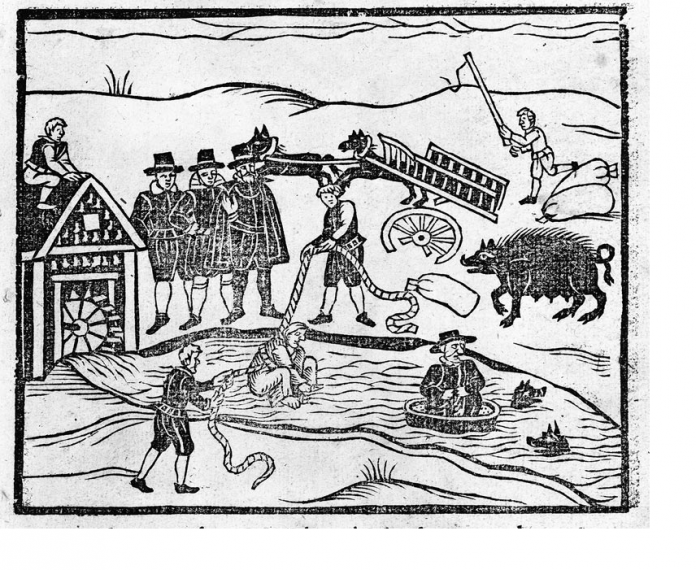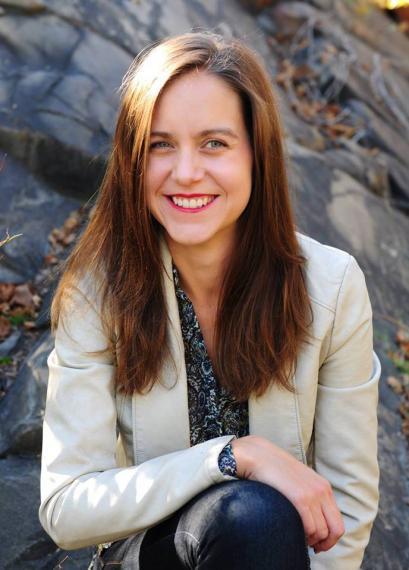History News
Congrats!! McDougall's People's Game makes Guardian's Best Sports Books List
Dr. Alan McDougall's book on East German football, The People's Game: Football, State and Society in East Germany (Cambridge University Press, 2016) made The Guardian Best Sports Books of 2016 list.
Now available in paperback and makes a wonderful Holiday gift.
Congratulations from all of us!
Recent Grads Talk about their Careers
Recent Grads Talk about their Careers
Each semester the History Department invites some of our recent graduates back to campus to talk about their careers. Our Fall 2016 Gateway Seminar, 27 October, featured Monica Finlay (MA 2011) researcher and analyst for Edelman, the world's largest communication-marketing company; Graham Shular (BAH 2012) occasional teacher in the Thames Valley District School Board; and Robbie Berardi (BAH 2012) teacher/interpreter specialising in blacksmithing at the Waterloo Region Museum.
Our New Post-Doc! Allyson Stevenson
The Department is delighted to announce the appointment of our new Post-Doctoral Researcher, Dr. Allyson Stevenson.
Now in Paperback: The People's Game by Alan McDougall
Dr. Alan McDougall tells us that his recent book The People's Game: Football, State and Society has just come out in paperback with Cambridge University Press.

Invitation to History: First Year Course Topics
A new, mandatory course for all first year History majors and minors:
HIST*1050 Invitation to History
Invitation to History introduces students to the basics of the historian’s craft including interpreting primary sources, locating and critically analyzing secondary sources and writing for History. It will provide you with the tools you need for success in your History major, minor or area of concentration. Choose one of the following two classes:
Rural Diary Archive Celebrates its First Year
On September 24th, the Rural Diary Archive celebrated its first anniversary. To date volunteers have transcribed 1,630 diary pages in this ongoing crowdsourcing project.
Webmaster Julia Barclay is a third-year history student and busy uploading additional diaries from across Ontario for people to read, search and transcribe online. Cathy Wilson, Founder and Director of the project, will be speaking to several groups in Wellington County this year as we now have 24 diarists from the County. Check out our diaries for 1867 as we approach Canada’s sesquicentennial.

Our New Hire! Dr. Brittany Luby
The Department is very delighted to announce that, beginning in January 2017, Brittany Luby will be joining our faculty. Professor Luby comes to us from Laurentian University.
Kevin James research appears on Knowledge Network show
University of Guelph history professor Kevin James has a genuine passion for researching tourism history in the United Kingdom. From 2010 to 2012, James had the opportunity to lend his expertise to the BBC program Grand Tours of Scotland.
Tourism in Canadian History: Alan Gordon, Susan Nance featured in Histoire sociale/Social History
This June, Alan Gordon and Susan Nance are featured in a special issue of Histoire sociale/Social History on tourism in Canada with articles on pioneer villages as living history museums, and on horses of the 1920s Calgary Stampede, respectively.
